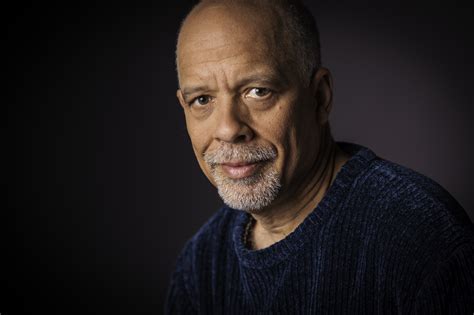A Quote by Giancarlo Esposito
Many times - especially when I'm playing an historical character - I want to be really on target with how I create that character and really nuanced with who that human being might be. But I don't want to lose the likeness of me or the depth of my own personality. So meditation and my spirituality has helped me to realize that, yes, I want to get out of the way but I also want the ability to hold on to what the audience likes of what they see of me.
Related Quotes
I think Robert Altman could see things in me that I didn't know I possessed, which is really exciting. He also instilled a tremendous amount of confidence, because he would say things like, "These are the bare bones, but I want you to go fill it out. You find the character. You bring it to me. You write whatever you want." And if you had an idea, he wouldn't want to hear about it. He's want you to show it to him.
Boxers risk a lot in the ring. That's one of the things that attracts me to it. You want to see a knockout but I also really don't want to see people get hurt. It's this constant dilemma when I'm watching boxing. The only times I get nervous is watching a really big fight or when my brother is playing. I get to the stage where I'm actually shaking.
I seek a diverse spectrum of roles. If I just was in a large-budget feature for a younger audience, then I want to find a smaller, more character-driven piece that might be for a more mature audience. Or if I'm playing a goofier character, then maybe I want to go play a serious, psychopathic character. But at the same time, it's usually a case-by-case basis where I'm judging the merit of a role by the script I'm given, and it usually has less to do with the larger framework and more to do with how the part personally appeals to me in that moment.
We want a sense that an important character, like a narrator, is reliable. We want to believe that a character is not playing ages or being coy or being manipulative, but is telling the truth to the best of his or her ability...We do not wish to be crudely manipulated...We want to be massaged by a masseur, not whapped by a carpet beater.
I must say Steven Spielberg was great to me, and I loved working with him. He called me up on the phone and was like, "I want you to be in this movie - 1941. There are a couple of parts. You can take whichever one you want. One of them is a main character who is involved in everything, and there's another character who has his own storyline and goes off on his own. He's probably the funnier, more unique character." I said, "Well let me do that second one."
The less you offer, the more readers are forced to bring the world to life with their own visual imaginings. I personally hate an illustration of a character on a jacket of a book. I never want to have someone show me what the character really looks like - or what some artist has decided the character really looks like - because it always looks wrong to me. I realize that I prefer to kind of meet the text halfway and offer a lot of visual collaborations from my own imaginative response to the sentences.
I think when I start out writing, I always try to write the version of the movie that I want to go see. I don't mean it in a way that ignores the audience, but I really set out to make a movie that I want to see and that, hopefully, other people will want to go see it. So whatever's amusing to me, I guess, I throw it all in there.
Because of Billy Joel, I've been playing piano since I was knee high. The house was always full of music, so of course he's influenced me, but I think I've also developed my own sound. He's also been really good about giving me advice, which I think has helped me really stay true to what I want to do musically.
This character matters so much to so many people. I want to get that right. I want to do it justice. I want people to believe in the character and have faith in the character and kids to grow up wanting to be Superman. Or, God forbid, there's people who are going through hardship and wishing that this character would turn up and save them.
The first film that really knocked me out was Alien by Ridley Scott. This is a great movie because no matter how many times I watch it, I still find myself fully invested in the characters despite the fact I know what is coming. I think it was this type of mastery of storytelling and the ability of bringing the audience so completely into another world that made me want to become a director.




































